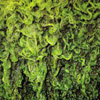 High Place’s second proper full-length album is a gutsy and daring surprise, as Mary Pearson and Rob Barber have cast aside much of the childlike innocence and fragility that characterized their earlier releases in favor of a darker, more muscular new direction. While I still prefer the quirky, blurred pop from their past, the shift towards a sharper-focused, more visceral sound works far better than I expected.
High Place’s second proper full-length album is a gutsy and daring surprise, as Mary Pearson and Rob Barber have cast aside much of the childlike innocence and fragility that characterized their earlier releases in favor of a darker, more muscular new direction. While I still prefer the quirky, blurred pop from their past, the shift towards a sharper-focused, more visceral sound works far better than I expected.
High Places vs. Mankind begins on a promising note, as layers of dubby percussion and burbling synthesizers coalesce into an odd and irresistable groove. Mary Pearson’s vocals sound a bit tougher and more adult than usual, but “The Longest Shadows” has a cool melody and a great guitar riff going for it, so it all works beautifully. In fact, all the necessary elements for a perfect indie pop masterpiece are present, but it frustratingly just misses the mark by going on for almost six minutes and having an odd middle section that doesn’t feel like it belongs in the same song. Nevertheless, I still find myself listening to it quite a lot, as the music is extremely enjoyable despite its minor presentation flaws.
Fortunately, the second song (“On Giving Up”) gets everything just right. It has all of the same positive attributes of its predecessor (catchy guitar riff, unexpectedly heavy beat, strong vocals), but is structured much better and is about half as long. It was at this point that it dawned on me that I was listening to a very different High Places than I was used to. The only clear link between this album and the past is that Barber’s passion for unusual rhythms and appropriation of exotic sounds and instrumentation remains a driving force, but the beats have gotten much heavier and have been joined by relatively straightforward guitars. Also, Pearson’s characteristically warm and sweet vocals are pretty rare, as she more often sounds intense or sultry (particularly during the “tonight is going to be the night” chorus). Notably, she has also dropped the omnipresent nimbus of reverb and delay from her voice and tries her hand at singing with very little production enhancement. For these first two songs, High Places sound far more like eccentric New Wave revivalists than the introspective dreampop ethnophiles I was anticipating, but they do it so well that I don’t care.
Then an interesting thing happens, as the third song ("She’s A Wild Horse") takes things back to gentler, more languid times and it actually sounds pretty boring after the album’s thumping, infectious start. The fault lies mostly in the songwriting though, as it sounds like a half-baked and sketch-like retread of their past (plus it is not helped by fairly mundane guitars and the intrusion of a disproportionately exuberant beat). The next track (“The Channon”) is equally exasperating, but for different reasons: the music is warm, shimmering, and beautiful, but it just ends after about 2 minutes without ever adding vocals or evolving into an actual song.
Thankfully, the second half of the album eventually bounces back from the 3- or 4-song lull in the middle, though it never quite hits the highs of the opening tracks. However, there are still a lot of great ideas tossed out and some very good songs: “Constant Winter,” “The Most Beautiful Name,” and “When It Comes” all have very likeable and propulsive grooves and the lurching, minimal “On A Hill on a Bed on a Road in a House” is endearingly strange and imaginative.
As a whole, I have fairly conflicting feelings about this album, but they’re generally positive. It is a bit hamstrung by intermittent bloat, filler, and somewhat weak material, but there are also several great songs that make it a worthy addition to their oeuvre. Also, it took some gravitas for Rob and Mary to make an album like this: they already had a distinct sound and a fan base that loved it, so it would have been much safer to stay the same. There are still some kinks to work out (the guitar parts aren’t always a good idea, the songs are a bit too reliant on drums, and Mary’s lilting vocals are sometimes an uneven match for the heaviness of the rhythms), but High Places remain a very charming and unique band. They may be a bit less tender and intimate now, but the sound of two introverts trying to get a kick-ass party started is still very appealing in its own right.
Samples:
Read More

